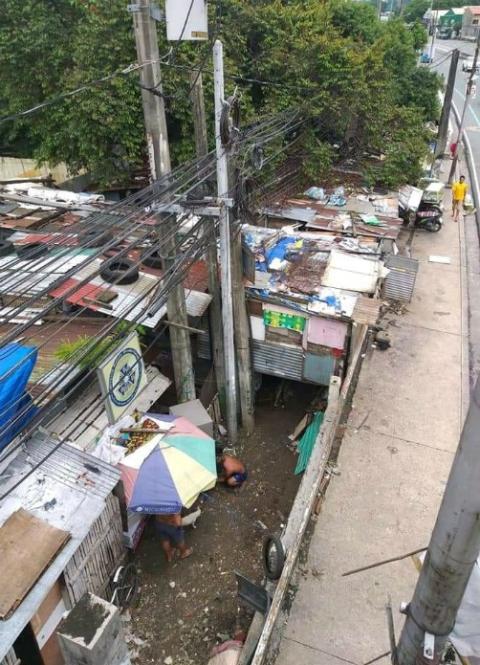
Sisters of Our Lady of the Immaculate Conception of Castres work with children from depressed areas at Emilie's Home in Quezon City, Philippines, in 2014. (Provided photo)
Who are the poor? We all have different ideas about who the poor are; our ideas may be related to our own experiences in life.
Before, when I heard the word "poor," I immediately thought of people who are materially poor.
I began to understand and discover that there are various concepts of poverty or of being poor — including material, spiritual, voluntary; or solidarity with them; or the poor as evangelizers.
Poverty is not always negative, but there is a certain poverty that is imposed, resulting from unjust structural systems that need to be critically examined and addressed.
We too have our ideas, thoughts, feelings and even biases towards the poor.
God knows and hears the cry of the poor (Psalm 34:7) — especially those who are victims of unjust systems in society. He dwells in the people whose situations may be considered hopeless in the eyes of society. God desires that everyone may have life to the full (John 10:10), and that includes being set free from any form of injustice, suffering, violence and discrimination — so that each person may be regarded with respect and value. He continues to provide for his children, giving preference to those most in need.
"Father, it is for God that I leave you. I want to serve the poor." These were the words of St. Émilie de Villeneuve, French Catholic nun (and the founder of my congregation), to her father when she told him her desire to dedicate her life to God in the service of the poorest of the poor.
Her seeing and experiencing the situations of God's poor inspired her to be freely available for them. She wanted to be with the poor — the sick, prostituted women, prisoners — showing them, in her way, that God loves them.
Advertisement
Her passion was her love for God and his poor. She not only wanted to help them but also wanted to give her life for them, to treat them as equals, to give them back their lost dignity as human beings, following the example of Jesus, whose heart was always to the poor and suffering.
I worked as a nurse in the provincial health office in my town in the Philippines for some years before I joined the Sisters of Our Lady of the Immaculate Conception of Castres.
Most of the people who sought help in our office were the indigents and poor people — those who had no means to pay for their health care, who depend on free services from the government.
I was assigned to the Animal Bite Treatment Center, where I administered anti-rabies injections to poor residents of the provinces who could not afford to pay in hospitals.
Assisting in the National Tuberculosis Program in the office, I also saw how the poor were the most seriously affected by most infectious diseases. It is a sad reality that their living conditions and poverty contributed to their health status.
Belonging now to a missionary congregation committed to the poorest of the poor, I have had the opportunity to experience being with the poor in different areas. These experiences allowed me to see more clearly the different faces of poverty: malnutrition, unemployment, homelessness, inhumane living conditions, sicknesses and more conditions that threaten every aspect of human life.

Mindanao Avenue, Barangay Pag-asa, Quezon City, Philippines, in 2019 (Lady Anne Cardoso)
Seeing these unfortunate realities opened my eyes, gave me perspective, raised my consciousness, and then God directed me to this path.
My encounters with the families and children in slums or depressed places in our mission areas made me realize, too, the evangelizing power of the poor. I see in them hope, joy, gratitude and faith in God — despite their sufferings and difficulties.
As stressed in Evangelii Gaudium, "I am a mission on this earth; that is the reason why I am here in this world. We have to regard ourselves as sealed, even branded, by this mission of bringing light, blessing, enlivening, raising, healing and freeing."
Being followers of Jesus, we are challenged to accompany the poor in their struggles, hear their cries and needs, empower and bring out the best in them, despite their situation, and stand and journey with them in their search for justice.
Everyone is poor, in the sense that everyone needs to be connected with God, who is the source of everything. Each one of us has something to give and each one of us has needs to be fulfilled. As in breathing, we take in and we give off.
We need to recognize ourselves as part of the whole body of Jesus, the church, which is a church of the poor. We welcome our immolation and allow ourselves to be immersed in reality and transformed to have a heart like Jesus, a heart for the poor. We are also invited to make our lives a witness of what the kingdom of God is all about.
[Jennibeth Sabay is a junior sister of the Sisters of Our Lady of the Immaculate Conception of Castres. Before entering the novitiate in 2016, she was a public health nurse in Cebu Provincial Health office. Currently, she assists in a program called Pastoral Care for Children-Philippines. She also serves on a vocation team and at Emilie's Home, a program for women and children.]





